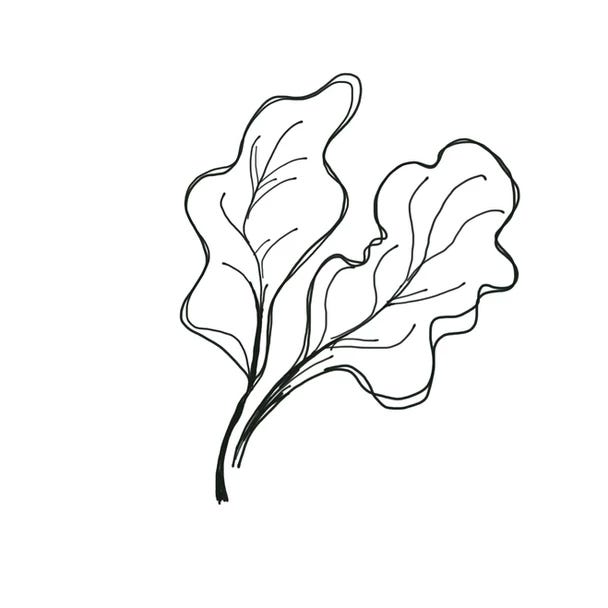Lately, we’ve been thinking about dedication. Our dedication to bringing our vision of Feminist Food Journal to life, even though magazines aren’t generally considered a booming business. Our dedication to you in creating content worthy of your time and attention when both are in high demand. And the dedication owed by this project to the generations of feminist food scholars, activists, and writers who have worked tirelessly to lay the groundwork from which to tackle these issues.
In the spirit of this dedication, we wanted to share with you a loosely alliterative (D-themed, just let us roll with it) list of some resources that we've been reading, listening to, and watching this month—things that have made us think differently about food, feminism, and social change. So without further ado, please find the first-ever edition of our newsletter, Feminist Food Journal Recommends. We got a little carried away, so it will be posted in two parts.
DATA DON’T LIE
The Rhythm of Food provides fascinating insights into the rhythms of our food searches, gleaned from Google Trends data annually and over time (theirs stops in 2018, but it’s great inspiration to go off on your own). There’s nothing more vindicating than finding evidence for facts you already felt to be true. Like how molecular gastronomy isn’t that cool anymore, or that people only needed a nudge from Stanley Tucci to go all-in on Negronis. Special shoutout to the ‘Charts that look like the food’ filter which nails gefilte fish.
DAVID CHANG—OR NOT
The American gastronomy behemoth is taking the future of food to Hulu with his new show ‘The Next Thing You Eat’. We’re just as partial to Ugly Delicious and Breakfast, Lunch & Dinner as the next Vancouverites who felt special when a very stoned Seth Rogen took David Chang to our favourite Cantonese BBQ joint, but we’re also wary of male-dominated versions of the food future which tend to focus on the work of other men.
We recommend also (or instead) checking out ‘The Fate of Food: What We’ll Eat in a Bigger, Hotter, Smarter World’ by American journalist Amanda Little, stunning in its breadth of topics addressed and sensitive in its approach to uncovering the nuance in what are often otherwise framed as black-and-white debates, such as the use of GMO seeds. She was recently interviewed on an excellent food-focused episode of the TED Radio Hour, alongside the ‘Black Forager’ TikTok sensation Alexis Nikole Nelson, Indigenous chef Sean Sherman, and food waste entrepreneur Jasmine Crowe.
DAMN, WE NEED MORE WOMEN AT COP26
COP26 highlights why the topics we cover are so important. We have Boris Johnson comparing the impending climate apocalypse to a James Bond plot gone wrong, while the UK’s climate negotiations team, where men take up 10 of the 12 leadership positions, looks nothing like the lesbian feminist utopia that terrified Ian Fleming so much that it became central to the plot of Octopussy.
The UK team isn’t uniquely villainous; 80% of people displaced by climate change are women, but we're continually excluded from climate change leadership, research, and media narratives. Statistics on gender equity in the food systems sector are similarly unimpressive. Food isn’t even officially on the COP agenda, despite the fact it accounts for around one-third of our greenhouse gas emissions. This tells us that we urgently need more women leadership on climate and food issues, and deeper integration between the work being done on food, gender equity, and climate change.
DUCKS (VS CHICKENS)
Is duck the antidote to chicken? Tammie Teclemariam says that if, like her, you’ve decided to keep eating meat during the climate emergency, you may as well make it meat that you actually enjoy. She says: Think crispy and juicy over stringy and dry. Think duck. Evidence indicates that swapping red meat for poultry (or poultry for poultry) is neither the answer to climate change or animal suffering, but we didn’t create Feminist Food Journal to tell anyone how to eat; we want to dig deeper into why we humans make certain choices regarding what we eat, and that includes considering how to maximize benefits for a similar cost.
Know of an interesting book, article, video, podcast, tweet, or anything else that we should take a look at? Want to send a suggestion for a resource to include in our next blog post? Please get in touch with us at hello@feministfoodjournal.com.







